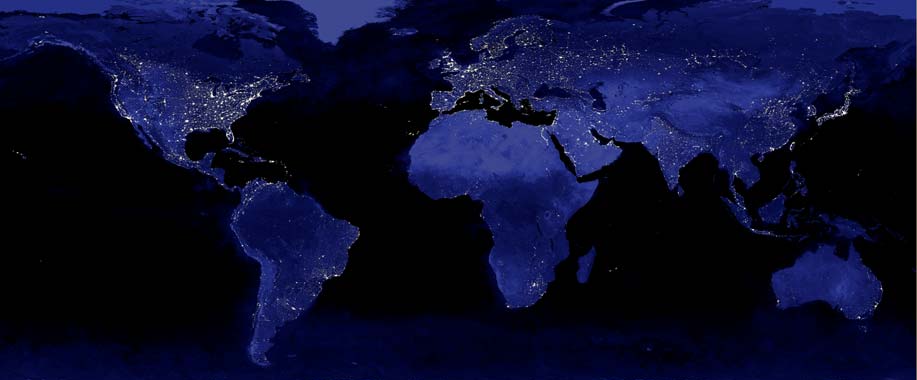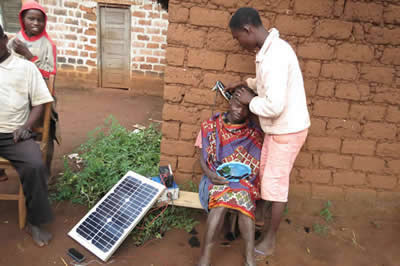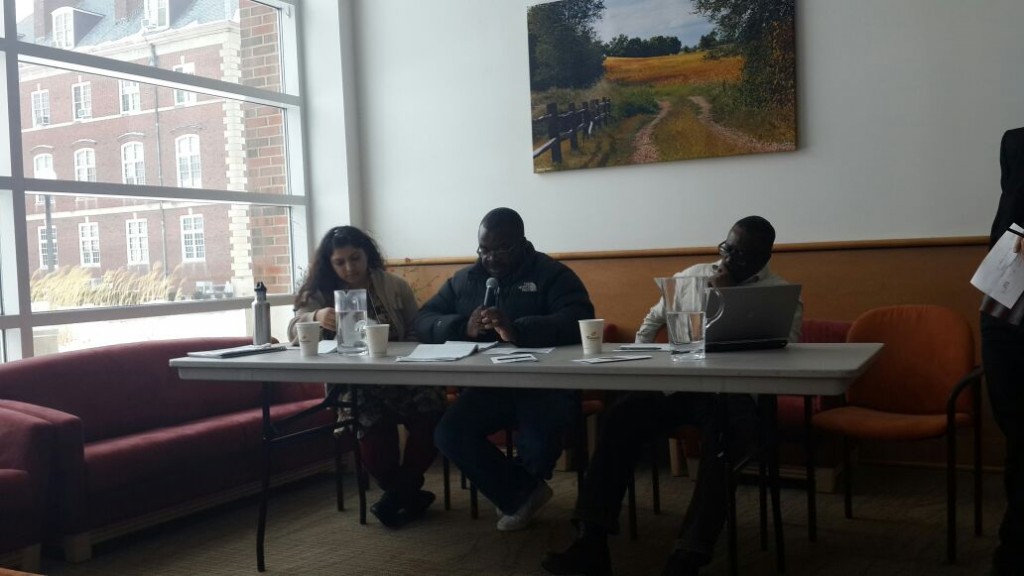
Image source: http://powerafrica.afrst.illinois.edu/
How often do you take electricity for granted? For some of us, it’s not even something we think about often. Keeping cell phones charged is as simple as remembering to plug them in overnight. Staying up late at night to do homework is never hindered by a lack of light to read and write by. The wireless Internet router is always on and blinking away, keeping us in touch with friends, family, and coworkers via email and social media.
For many millions of people throughout the world, however, having regular access to electricity – whether at home or in public – is by no means a given. In fact, this is a major issue in terms of the growing disparities between people living in the so-called developed and developing nations.
This past March 2nd to 4th, the University of Illinois hosted a conference focused on electricity, politics, and inequality both on the African continent and in African nations’ relations to others, especially in the context of post-colonialism. “Power Africa: Promises, Potentials, Pitfalls, and Possible Alternatives” convened various expert panelists from Africa, Europe, and North America to discuss issues relating to how “power,” in both of its meanings, affects individuals’ relative quality of life in the Global South, and particularly in sub-Saharan Africa.
Several members of the UIUC faculty and staff community were present, including Prosper Panumpabi (originally from the Democratic Republic of Congo; Electrical Engineering), James J. Overbye (Electrical and Computer Engineering), Kiruba Haran (Sri Lanka/Nigeria; Electrical and Computer Engineering), and Tami Bond (Civil and Environmental Engineering). The event was sponsored by the Center for African Studies along with several co-sponsors and held at the Funk-ACES (Agricultural, Consumer, and Environmental Sciences) Library on the UIUC campus.

Solar panel used to power hair clippers, Gurue, Mozambique. Photo by Dr. Julia Bello-Bravo (UIUC Center for African Studies).
Guest speakers included Claudia Schwartz of the U.S.African Development Foundation (USADF), James Murombedzi (UN Economic Commission for Africa Coordinator), Lauren MacLean (Department of Political Science, Indiana University), and Boaventura Monjane, a journalist and activist from Maputo, the capital of Mozambique.
The overarching tone of the event was one of careful optimism about the ways in which quality of life has risen with greater access to well-managed public utilities for average people, at least in some cases. At the same time, however, all speakers were concerned about the exploitative nature of transnational corporations involved in African countries and their lack of accountability to local populations in the extraction and processing of raw materials into power sources. Such is currently the case of Mozambique, and this issue was addressed in detail by one panelist, the Mozambican journalist and political activist Boaventura Monjane.
Monjane spoke on the event’s third day. In both his talk and its accompanying paper, he stated, “Despite its electricity generation potential, the greater part of [Mozambique] is entirely in darkness and access to electricity is among the lowest in the world. For instance, in rural areas about 1% of the population has access to electricity. Even in urban areas, access to and use of electricity is still very limited due to the high costs and erratic supply” (2015: 1). He also showed a photo of the injuries inflicted by local police on a participant at a recent protest against these discrepancies.

Members of the panel on the topic “Is Power Africa Sustainable?” (March 3rd). L to R: Dipti Bhatnagar, Baruti Amisi, James Murombedzi.
An article from the New York Times in November 2012 investigated these very issues. Specifically, the role of transnational energy corporations is exemplified in the case of the Brazilian coal mining firm Vale do Rio Doce, which is currently active in the Tete province of Mozambique. This company, however, was only one of several transnationals operating in Mozambique mentioned by Monjane in his presentation. Others mentioned were from both the Global North and South, including Chinese and Indian firms.
During the round table discussion Baruti Bahati Amisi (Dem. Republic of the Congo) concluded the conference itself on March 4th with the following words: “The well-being of the poor is not directly linked to technical issues. But it is directly affected if their interests are not kept in mind.”
To see the official program of the event, visit http://powerafrica.afrst.illinois.edu/.
References
Monjane, Boaventura. (2015). “Mozambique: An Energy-rich Country in the Dark.” Power Africa: Promises, Potentials, Pitfalls, and Possible Alternatives (Conference). 4 March 2015. UIUC Center for African Studies.
Polgreen, Lydia. (2012). “As Coal Boasts Mozambique, the Rural Poor Are Left Behind.” The New York Times. 10 November 2012. Online. Accessed: 19 March 2015.

